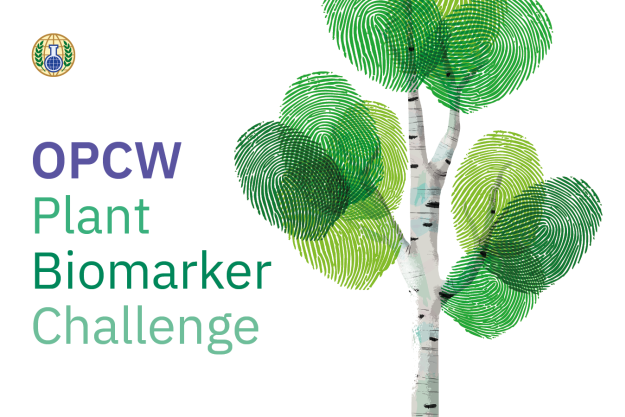
THE HAGUE, Netherlands—7 December 2020—The Organisation for the Prohibition of Chemical Weapons (OPCW) launched today a crowdsourcing challenge for scientists from all OPCW Member States to present innovative ideas on toxic chemical exposure indicators in natural vegetation. The deadline for submissions is 14 January 2021.
The Plant Biomarker Challenge aims to identify original solutions for recognising the biochemical signatures of chemical exposure in plants. Such markers may include observable changes in colour, leaf and/or stem morphology, and/or any other visible health indicators that may point to the presence of toxic chemicals.
After the review of all submissions, principal authors for up to ten selected proposals from all of the five OPCW regional groups will present their ideas to the OPCW’s Scientific Advisory Board (SAB) technical evaluation team. Up to five of the presenters will be awarded a maximum prize of €40,000 to develop their concept.
All of the scientists who submit proposals will be given the opportunity to co-author a scientific review article that summarises the collective knowledge generated in the challenge as a means of facilitating the international exchange of scientific knowledge.
The SAB discussed the plant biomarker concept extensively and concluded that effective detection and recognition of biochemical change in the environment could enhance analytical capacities of OPCW’s on-site investigations. The Board, therefore, recognised plant biomarker capabilities as highly relevant to the implementation of the Chemical Weapons Convention.
The project is funded by the European Union.
All questions and submissions should be sent to OPCW Procurement.
Background
The OPCW Scientific Advisory Board is composed of 25 independent experts from OPCW Member States. The role of the SAB is to assess and report to the Director-General developments in scientific and technological fields that are relevant to the Chemical Weapons Convention. On request, the SAB also provides advice to the OPCW Technical Secretariat on technical matters related to the implementation of the Convention, including on cooperation and assistance.
As the implementing body for the Chemical Weapons Convention, the OPCW, with its 193 Member States, oversees the global endeavour to permanently eliminate chemical weapons. Since the Convention’s entry into force in 1997, it is the most successful disarmament treaty eliminating an entire class of weapons of mass destruction.
Over 98% of all declared chemical weapon stockpiles have been destroyed under OPCW verification. For its extensive efforts in eliminating chemical weapons, the OPCW received the 2013 Nobel Peace Prize.
More Information
- OPCW Plant Biomarker Challenge
- Contact OPCW Procurement
- United Nations Global Marketplace Tender Notice
- Scientific Advisory Board
- Report of the Scientific Advisory Board on Developments in Science and Technology for the Fourth Special Session of the Conference of the States Parties to Review the Operation of the Chemical Weapons Convention
- Report of the Scientific Advisory Board’s Workshop on Emerging Technologies
- OPCW Basics
